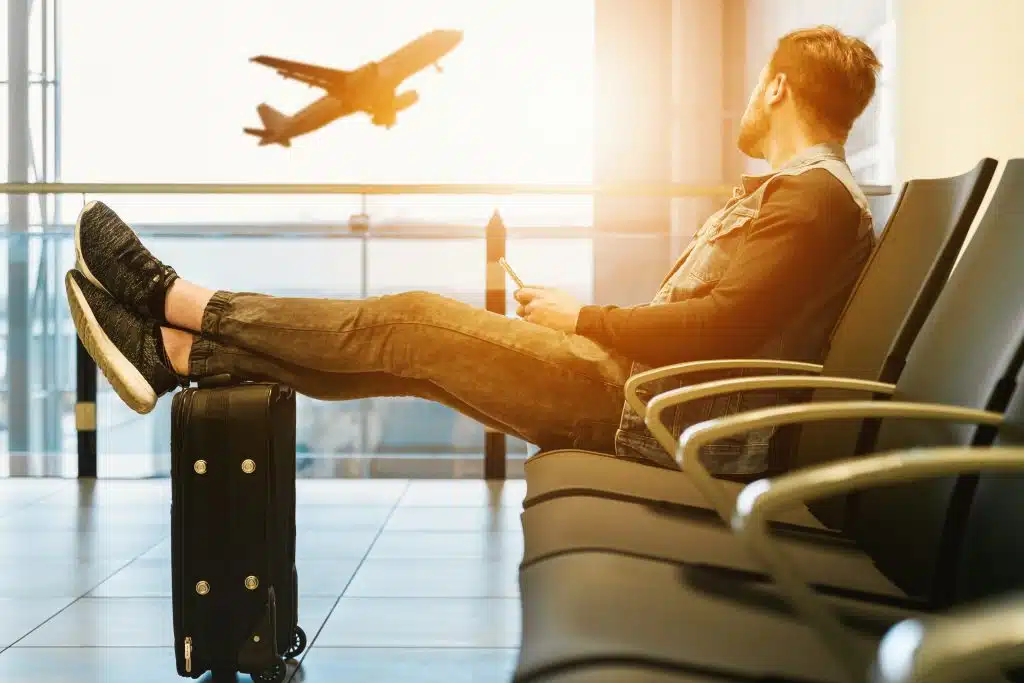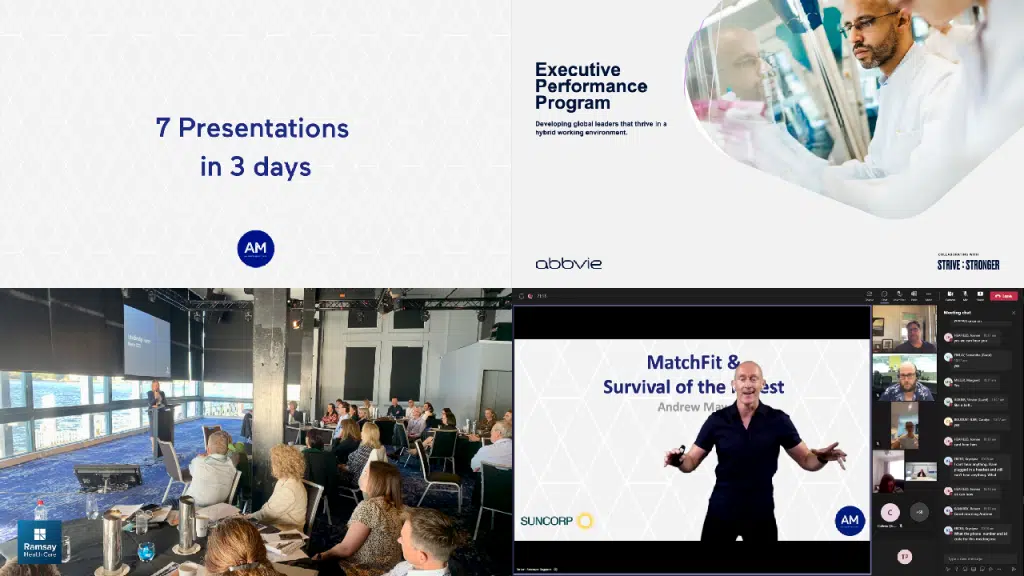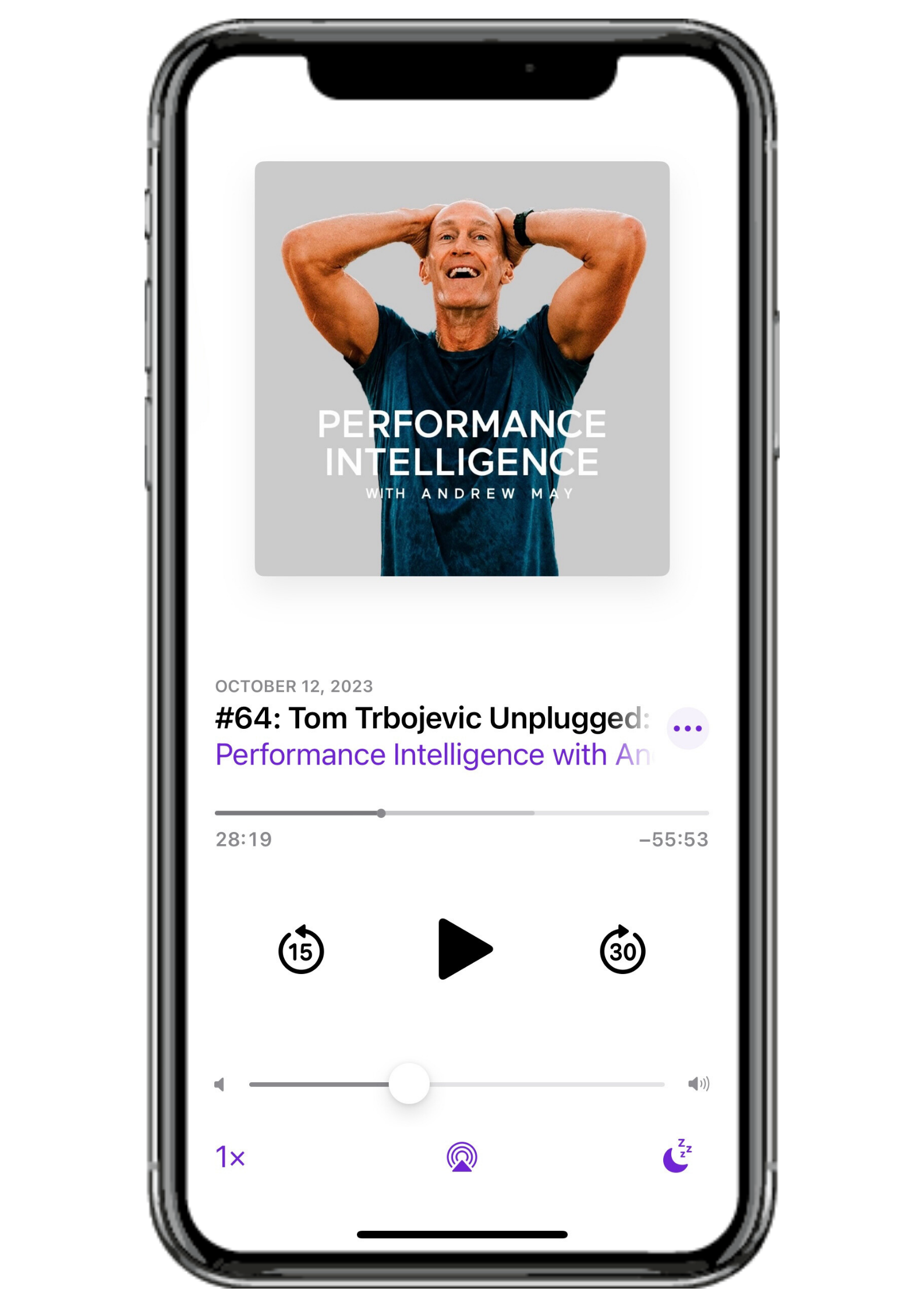At the time of writing this article, there are over 11 million Australians in lockdown.
The first lockdown in March last year was almost novel. Working from home, not getting dressed for work each day (hello, leisurewear!). The extra time saved not travelling to work. However, constant change, uncertainty, and ambiguity have killed any novelty, and the longer COVID continues to disrupt our lives, the more people are feeling flat, fatigued and in many cases, like they have a constant case of jetlag.
A female coaching client commented to me last week, “Most days I feel jetlagged or slightly hungover. But without the Qantas pyjamas and no champagne on the tarmac.” I think she summed up how many people are feeling – jetlagged, but without the travel. Oh, apart from venturing into your backyard or local park for the weekend.
Relaunching our 30 Day Boost program (designed to help companies stay productive, boost energy levels, enhance psychological resilience and improve team cohesion) we have heard countless people mention similar words like ‘jetlagged, fuzzy, sluggish, lockdown-itis, languishing.’
The key to understanding why you feel like this is first delving a little into the science of chronobiology (the body clock) then exploring four areas to focus on to re-energise yourself and your routine.
Understanding Your Body Clock
The internal clock, or circadian rhythm, has taken thousands of years to develop; yet our modern lifestyle – with all sorts of stimulants from electric lighting to caffeine, shift work and alarm clocks – is comparatively new to the human species. COVID is even ‘newer’ but so many of our so-called adaptive behaviours brought on by WFH, home schooling and social distancing – are playing havoc with our internal rhythms. This sets a cascading challenge to our body and brain, and overall wellbeing.
The body clock has an important role in ensuring that you get rest and recovery and assists with growth and repair. It is believed the need for human preservation resulted in a body clock that keeps us awake at day, to hunt and feed and, at night, to sleep and stay out of danger.
Circadian rhythms are important in determining the sleeping and feeding patterns of all humans. Brain wave activity, hormonal secretion, body temperature, metabolism, heart rate, blood pressure, cell regeneration as well as other important biological activities are linked to this 24-hour cycle. Circadian rhythms can be observed in the performance of many human activities including sensory control, reaction time, time estimation, memory tasks, verbal tasks, arithmetic calculations, and activities like driving a car. In a regular 24-hour day there are times when energy and alertness levels are at a peak and times you are most likely to feel tired and low in energy. Most people have two peak alertness times each day, around 12 noon and between 6 and 7pm. Almost everyone’s body clock is programmed to make them feel sleepy in the middle of the afternoon (around 3pm) a time that may be less productive or even dangerous for some activities.
But this has all changed due to COVID. We have lost some of the natural rhythm in our days, weeks, even months. Before lockdown, every Monday I took Miki to swimming, and we would do laps together before her squad started. Archie also had soccer training on Monday. Tuesday after work I did yoga. Thursday was Bondi Crossfit and Friday morning cycle squad with a bunch of mates in Centennial Park. Saturday mornings was school sport. Now Miki and I are no longer swimming together. Yoga has been canned until further notice. I kick the soccer ball with Archie whenever we can and cycle with Shagger on a Sunday morning. Our previous family rhythm has been put on hold.
Every day kinda feels the same, without the structure and routines guiding me subconsciously to know what day of the week it is. Shifting from one meeting room to the next previously involved getting out of your chair and moving to the next location. Now we transition between meetings with the click of a mouse. Traveling to and from work acted as a natural bookend, demarking our personal and professional lives. Now getting ready for work involves shifting form the boardroom to the makeshift office on the kitchen table. In lockdown it is all jumbled. How many times have you found yourself stopping to guess what day it is? This normally only happens in that weird period between Christmas and New Year each year. Now it’s happening on a weekly basis.
In a recent article in The Age, Monash University circadian rhythm researcher Professor Sean Cain said “Being stuck inside all day exposed to artificial light can scramble our body clocks. In our natural history, we spent most of our time outdoors. We had bright light during the day, and at night it was dark. Cain positions “if the clock is out of sync with people’s lives, they can end up in a perpetual jetlag. Your body clock needs to be reset every day. Otherwise, mood and sleep kind of fall apart.”
Sticking to a Natural Rhythm of Life
The various lockdowns on top of the perpetual connectivity of technology, have disrupted the rhythms we work and live with. This means it is harder to get the downtime and relief from the pressure and pace of our lives. Many people are working more, having less time off, and are physically isolated from their colleagues. Additional anxiety from the pandemic and the subsequent agitation to our personal and working lives has, in many ways, created a perfect storm for burnout.
Much as we sometimes forget, our biology is not designed the same as machines. Humans work to the same rhythms of nature as other living creatures. We are governed by light and darkness, the rise and fall of tides, the four seasons, the rhythm of our internal body clock and the pulsing beat of our heart.
Inherent in each of these rhythms is an expansion and contraction, a rise and fall, energy and idleness. Even the rhythms of the working week and the weekend, the various ebbs in the flow of a working year (school holidays, public holidays, end of financial year, the post-deadline lull) give us the change of pace required to slow down and restore ourselves.
Lockdown Fatigue and Burnout
The COVID-19 pandemic has exacerbated fatigue and burnout among Australia’s workforce. Every week we are contacted by senior leaders or an organisation asking to support them/their team to manage workload, reduce fatigue and fight the risk of burning out. And remember the pandemic came on the back of a fast-paced digital revolution, drought, floods, bushfires and an economic downturn. For many businesses and leaders, there has been no downtime, no ebb and no flow. Just constant bombardment from one event to the next.
The Australian Psychological Society (APS) describes lockdown fatigue “as a state of exhaustion caused by the long-term effects of COVID-19 and the changes it has caused to every aspect of your life.”
The APS proposes some of the reasons for fatigue so many people are experiencing:
- Lack of freedom and not being able to do what you want
- A feeling of being cooped up and stuck at home
- Challenges of home schooling (Oh, I do love schoolteachers so much!)
- Isolation from being cut off from normal social contact with family, colleagues and friends
- Uncertainty and ambiguity around employment and future financial wellbeing
- Being overwhelmed by the constant news cycle and not seeing an end in sight
- Worrying about what the world might look like post-COVID
COVID-19 is a unique environmental stressor and for some people there can appear to be no respite. The mental health consequences are yet to be fully determined, due to the multiple factors impacting us during the pandemic.
Anxiety, trauma, and clinical depression are emerging in research studies as big challenges in the fallout of this pandemic. These psychological factors, combined with ongoing questions about how our workplaces will function moving forward, can all play a big part in causing fatigue and increasing the risks associated with burnout. Once you reach that point of exhausting yourself, your health, your productivity, your happiness, your quality of life all plummet, so it’s important to think about early mitigation.
Jolting Lockdown Jetlag
The following strategies help reset the body clock to its natural rhythm; create explicit borders that demarcate the start and finish of your working day; add rituals to energise mindset and enhance mental wellbeing; and take control of your calendar so you prioritise activities each week that nurture you and connect you to what is important.
-
Reset Your Body Clock
- Go to bed and get up at the same time each day as much as possible, even on weekends. Our circadian rhythm thrives on routine and consistency when it comes to our wake and sleep cycles (Yes, I know, this is much harder during the Olympics).
- Reset your brain with a good dose of natural bright light each morning, the earlier after waking up, the better. In summertime, wake up to bright light instead of an alarm clock. Bright light resets your hormonal system to decrease sleepy hormones (such as melatonin) and stimulate a rise the energy hormone cortisol.
- Ensure your daily living spaces have as much natural light as possible during the day before 7-8pm. Avoid dimly lit areas for long periods during the day.
- Reduce house lights 1-2 hours prior to sleep time and limit or avoid screen time pre or during bedtime. If you really must use a screen, turn to night mode and/or use blue light blocking glasses. Blue wavelength light that is omitted from smart phones and devices significantly disrupts our body’s natural rhythms by delaying the circadian clock.
- Avoid eating a heavy or large meal at least 2 hours before bedtime. Having to digest a large meal pre sleep means the body works longer overnight when it naturally wants to rest, restore and move into idle mode.
-
Reset Your Environment
- Designate a work pace and set it up so your computer is level with your eyes (stack books or a box to do this if you need). This means you won’t be hunched over your laptop working for extended periods of time and risk ongoing neck and back problems.
- Use a mouse and large screen for improved ergonomics.
- Without the work commute and the routine of regular coffee breaks, incidental exercise can quickly become non-existent. Chunk your work by setting a timer and, in between increments, get up to stretch your legs, make a cup of tea, or go for a short walk or do a body weight circuit. Schedule in exercise throughout the day and keep using or start using Wearable tech to track your steps and keep you accountable.
- Aim to get up and out of your chair between 30 and 50 times each day.
-
Reset Your Mindset
- Change out of your pyjamas to create the psychological separation between your personal and professional life. Wear the same clothes as you would wear to work if that helps. Some people feel comfortable wearing a suit. While others are only dressing up from the waist up. Be careful on video meetings though.
- Schedule daily video conference meetings with the people you work with. This can help to create a sense of structure, reduce loneliness, and have time frames for completing tasks. Video meetings are another incentive to get out of your PJ’s and get into a routine.
- Set your hours and at the end of each day, take a moment to reflect on what you achieved and cross it off your list, this helps to tweak your routine and create a Better Week.
- A risk of working from home is that the boundaries are lost between work and home, and we become less productive while working longer hours (distractions are plentiful, the fridge is close by, and no one is looking over your shoulder to check what you are browsing on the internet). Chunking time can help with this, providing not only opportunities to get up, move and clear your head, but also the chance for a mental break to spend 15 minutes on whatever you please; washing, snacks, social media.
- Workplace psychologist, Meredith Fuller, suggests having some sort of ritual to signal to yourself psychologically that the day is over and to transition to your personal life.
- Without the social interaction of the office, ensure you connect with people – a friend, partner, family member, neighbour, colleague, pet – after work and have a fulfilling get-together.
- Be aware of how you are feeling, noticing if you have cabin fever and need to get out, if your boundaries are becoming too blurred and you need to reassess your routine, if you are feeling anxious and need to speak with someone, or you are becoming too isolated and need to focus on connection.
- Big picture perspective and gratitude. While this is challenging and inconvenient, draw on the Hebrew proverb that ‘this too shall pass’.
-
Reset Your Diary
- Wake up at least 30 to 60 mins before you start work to prepare physically and mentally for the day (ideally go for a walk and get some sunshine).
- Find your Operating Rhythm and understand natural energy highs and lows throughout the day. When you’re working in a place with lots of people, they can help get you through the slumps, but they’re not going to be there, so you have to be much more aware of your own rhythms.
- Discourage intrusion from family and friends while you are working. They wouldn’t interrupt you in the office and they shouldn’t while you are in your designated workspace. Wear a hat or headphones as a sign to ‘not disturb’.
- Communicate with loved one the times you are available or not.
- Have a list of tasks to tick off to keep you on track and have a sense of achievement each day
- Be flexible and adapt
Note: Alcohol and Screen Time Accelerate Jetlag
When you drink alcohol and watch TV or are glued to digital devices to ‘unwind’, this has the opposite effect of recovery. While television can feel like it provides an escape, it is designed to stimulate attention, meaning the brain is being bandied from alpha to beta and back again.[2] Not relaxing from your brain’s perspective. Add alcohol into the equation – and instead of slowing down and going into recovery mode, brainwaves are taken on a rollercoaster ride and physiologically it stimulates the SNS. Drinking more than 1 or 2 standard alcohol drinks before bed competes with the sleep maintenance influence of increased delta activity” (i.e. alcohol impacts your brains ability to relax into a deep sleep).[3] This means even though you may fall asleep faster, you struggle to stay asleep. This disruption inhibits rapid eye movement (REM) sleep, a time where we dream and consolidate memory.[4] The alcohol and screen time cocktail puts some people into a physiological stress state for well over half of their sleep time.
Alcohol and screen time creates a troubling trifecta where the sleep you have is not restorative, you have difficulty staying asleep and are likely to sleep for a shorter total period. There are also knock-on effects to functioning the next day. As far as burnout goes, daily alcohol and screen time does little for physical or psychological recovery. For enjoyment they are fine, but they are not the tools to help you reset.
5 Ways to Energise Yourself During Lockdown
- Transition Time. Create rituals at the end of each working day to transition from work to home. This can include activities like an evening walk, ocean swim, bike ride, warm bath, listen to music or call a family member or friend. Create your own activities that help your body and brain disconnect from work and transition to your personal life.
- Daily Sunshine. Vitamin D is essential for mitochondrial function and cell health, so get outdoors more often. Aim to spend 30 minutes each day in nature, ideally in sunlight to get maximum immune-boosting and mental wellbeing benefits. And do as many walking meetings as you can during the day.
- Go to bed and get up at the same time. Your body doesn’t know Wednesday from Saturday, changing up your sleep routine messes with your biological clock.
- Physical Activity Double Dip. Regularly train/move with others to strengthen relationships. Exercise is a great way to build physiological capacity, get a dose of nature and connect with other people.
- Laughter, fun and play. Build joy and play into your schedule, especially in weeks of constant back-to-back video conferences and meetings. Watch a comedy, call a friend, go to the park with children, family or friends. Try and focus on the good things in your life and practice gratitude).
References
1. Threlkeld, K. Employee Burnout Report: COVID-19’s Impact and 3 Strategies to Curb It. 2021; Available from: https://www.indeed.com/lead/preventing-employee-burnout-report.
2. Smith, M.E. and A. Gevins, Attention and Brain Activity While Watching Television: Components of Viewer Engagement. Media Psychology, 2004. 6(3): p. 285-305.
3. Chan, J.K., et al., The acute effects of alcohol on sleep electroencephalogram power spectra in late adolescence. Alcohol Clin Exp Res, 2015. 39(2): p. 291-9.
4. Pacheo D. and Sing A. Alcohol and Sleep. 2021; Available from: https://www.sleepfoundation.org/nutrition/alcohol-and-sleep.





